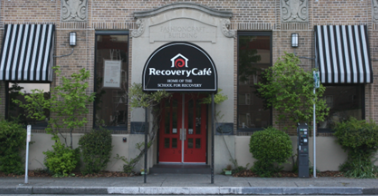New Article: Insights into a Recovery Community Center Model: Interviews with Staff from Recovery Café
06/27/2022
Key findings:
- Participants noted that having a safe, welcoming place was important, as was having access to food, community, and resources.
- Participants also highlighted that having opportunities to contribute to the Café and areas for growth were essential components.
Overview
In Spring 2020, focus groups and interviews were done virtually with ten Staff and six Member Facilitators at the Recovery Café in Seattle, Washington. They were asked what was most and least helpful for Members at Recovery Café. Participants noted:
- Tangible/Infrastructure Strengths including: classes/recovery circles/resources, food/meals, opportunities to contribute, physical space, and staff.
- Intangible/Experiential Strengths were: an accepting/welcoming environment, positive atmosphere, a place for developing self-worth and opportunities for personal growth, connectedness, and space (structure for the day).
“Initially I think [food] definitely brings people in. But it’s that sense of community and love. The way we treat people with respect and dignity and just having just an opportunity to kind of be a part of community that’s ultimately what I think definitely keeps people a part of our Membership at the Recovery Café.” –Staff Member
Future Directions
Recovery community centers, like Recovery Café, offer people with substance use and other mental health struggles a place to go along with or as an alternative to formal treatment. These findings support future research to better test these helpful components and can inform statewide efforts to improve resources for people living with substance use and other mental health disorders.
“It helps me feel useful, which is a – that cannot be understated, the importance of that. Because being somebody who’s had struggles with mental health for decades, and being in the system – in the system [laughs] – and not being able to successfully continue to work, you know, to have a place where I feel like I’m contributing is so important. It’s so important.” –Member Facilitator
Citation: Owens MD, et al. Insights into a recovery community center model: Results from qualitative interviews with staff and member facilitators from Recovery Cafe in Seattle, Washington. Alcohol Treat Q 2022 (in press). doi: 10.1080/07347324.2022.2088323





